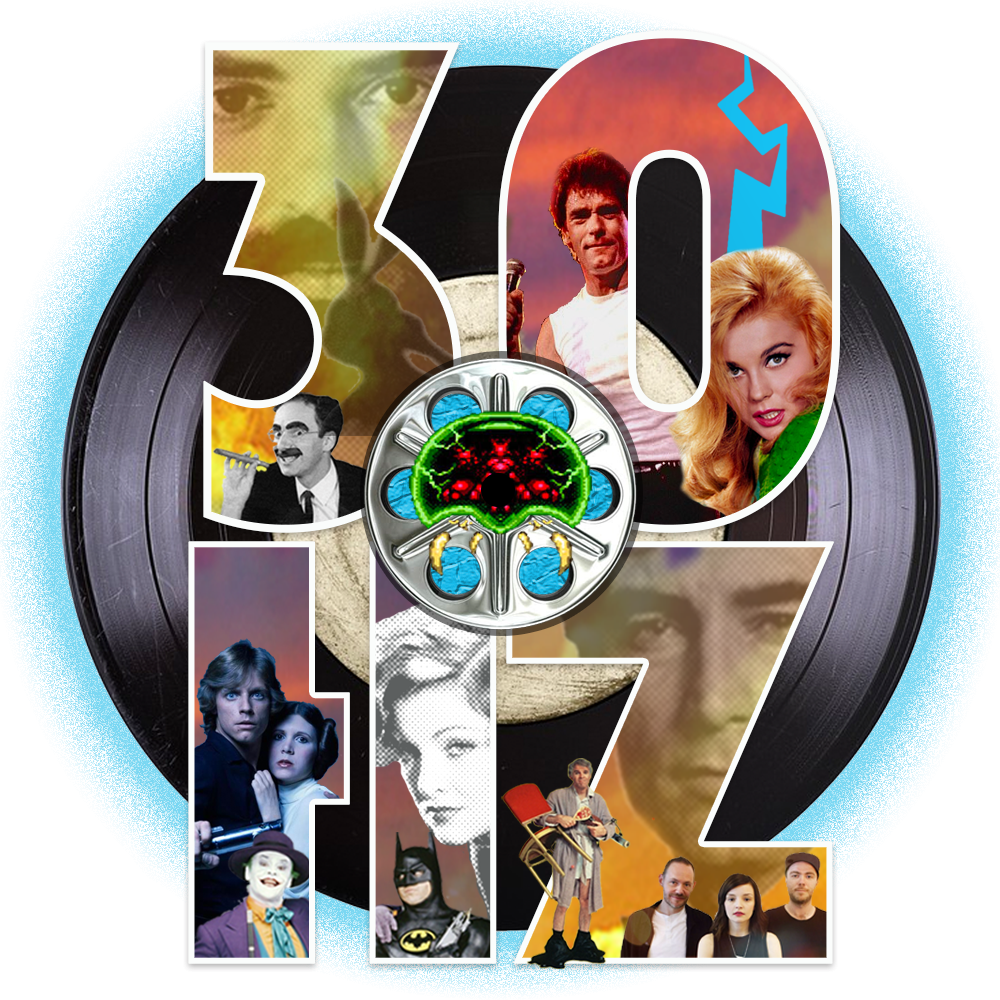I don’t mean to trod on the coattails of the magnificent 1948 Judy Garland/Lena Horne/Gene Kelly/June Allyson/Mickey Rooney flick but sometimes there’s no other way around it. Truth be told, I’ve never seen this movie and I’m just ripping off the title for a rumination on the relationship between writing and music. But seeing as how I’m providing more press for this movie than it’s received in fifty years, I feel I’m paying my royalties.

Also the Velvet Fog, Janet Leigh, Cyd Charisse and Perry Como! Featuring the most straightforward sales pitch in the history of Hollywood: “14 Stars! 22 Songs! 2 Love Stories!” One more Google search also revealed the artwork for the DVD release. Check this out. The sales pitch grows.
I don’t know if you can read the fine print beneath The BIGGEST Musical! but it betters that original tagline with “14 Spectacular Scenes!” Holy hell! 14! This makes me wonder whether there are more than 14 scenes. And if so, who decided which ones were “spectacular” and which ones were merely passable. What if all movies today were forced to sell based on the number of “spectacular scenes?”
But more on point. I just returned from the annual AWP Conference, held this year in Chicago. Once a year, writers from all over the country, converge on the host city and park themselves in the hotel bar for three days. An utterly bizarre phenomenon when you consider that for 361 days out of the year, writers pretend to be destitute creatures who refuse to wash their clothes in order to save on their water bill. And instead of wandering out into the city to find any one of the twenty nearby drinking establishments offering $3 Shiner Bock they endure shoddy service and $10 cocktails for the sake of room-stumbling proximity.

But again, I digress. Is there a point? There might be. I’m still figuring that out. Music and Words. Words and Music.
Having attended three AWP conferences and an MFA program, I feel like I’ve heard most every writerly tip, suggestion or standard style lesson. So it’s not the craft that keeps me coming back every year. It’s meeting new people, catching up with old friends and talking about writing… and more often than not, music. Writers are very sensory oriented. More than a few times during seminars, lecturers brought up the importance of music for their writing. And when writers get together, at least in my experiences, the topic of music comes up as much in conversation as does our intermittent self-loathing and writerly failures and successes.
Music inspires and soothes and focuses. One author played the same 3 or 4 albums during the entire time he composed his novel. Damien Jurado. Sun Kil Moon. He called them “indie muzak,” a crass term considering the “muzak” stigma but one that’s not entirely removed from the truth. It was also made in a certain self-effacing manner. As a writer, it’s often hard to take ourselves seriously. Likewise the promotion of the music that inspires our writing. These are personal, often dangerous confessions — and we don’t want to inspire any kind of controversy over something as personal as the music that moves us, inspires us. As much as we’re accustomed to it, we don’t abide more rejection than necessary. I don’t know a writer that doesn’t consider music an important part of the process.
Music lends tone, mood, focus, character. Music nurtures the writing process in ways we can’t even understand. The effect happens on a subconscious level, and it is as essential as a comfortable writing space, routine and all of the other trinkets and baubles we require to facilitate creativity.
On this Monday, as I think back to my three days in Chicago with @bsidesnarrative, I can’t help but consider the whole thing Words and Music. Writers talking with writers. Music lovers talking with music lovers. Writers (no-talent musicians) picking the brains of writers (who also happen to be brilliant musicians). I also had the opportunity to see the Twilight Sad perform at the Broken Bottle (feature to follow on Spill Magazine). Here’s a video of the band performing their best song on KEXP. These guys inspire me. James Graham’s lyrics — both cryptic and haunting — encourage me to sit at that desk and indulge the thoughts and feelings that I normally choose to straightjacket and force back into the closet.
[tube]http://www.youtube.com/watch?v=9NjktxpaB70[/tube]
I absorb these conversations about writing and about music and I come home inspired to write and listen and once again basque (yes, I know its the incorrect spelling; I just think it looks more haughty with the “que”) in the illusion that my words are brilliant and revelatory. Writers can only thrive under delusion. Whatever music we love, whatever music inspires us hoists these delusions up to protect us from the erosion and weathering effects of the realities of our pursuit. It holds our negativity at bay and reminds us that great things might come from focused inspiration and music that gleefully hits us right where it hurts.


